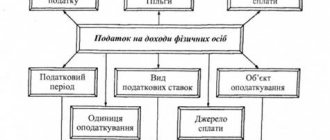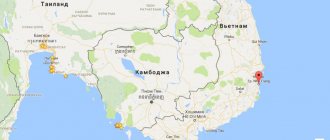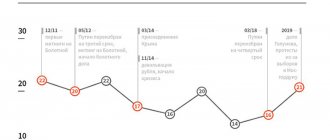What is the status of a forced migrant in the Russian Federation?
It is provided in the Russian Federation to any person forced to leave his place of residence for the following reasons:
- violence or another unlawful act was committed against him or one of his family members;
- persecution is carried out on grounds of race, nationality, language or religion.
- pressure for political or other reasons.
In other words, the administrative-legal status of migrants is granted to a citizen who did not leave his place of residence of his own free will.
Register now and get a free consultation from Specialists
Who can receive this status of forced migrants in the Russian Federation?
According to the definition prescribed in the legislation, forced migrants are citizens of the Russian Federation or, in certain cases, stateless persons who, for reasons beyond their control, left their place of residence in another country and returned to Russia, or persons who moved for the same reasons within countries - from one region to another.
Reasons for forced relocation may include persecution of such a person or his family members:
- based on nationality or race;
- for political reasons;
- by fact of belonging to one or another social group;
- by language;
- by religion.
Also, the reason for forced relocation may be the fact of violence committed against a citizen and his family.
The rights, obligations and procedure for obtaining status are regulated by the federal law on forced migrants N 202-FZ. According to its norms, persons who have committed a serious crime, who have left their country of residence due to a difficult economic situation, natural disasters and man-made disasters - global accidents, floods, earthquakes and similar events, as well as those who have not applied to competent authorities regarding recognition of him as a forced migrant within 12 months from the date of departure from his permanent place of residence.
Who can participate in the resettlement program
You can become a forced migrant:
- A Russian citizen who had to flee a foreign country and come back to his homeland.
- A citizen of Russia who has changed his place of residence from one subject of our country to another region.
- Citizens of countries that were formerly part of the USSR and who lost their migrant status after moving to Russia and obtaining citizenship.
- A child born within ten months after the parents were forced to move. Migrant status will be obtained upon application of one of the parents.
- Persons who arrived from other countries and live in Russia completely legally. Very often these citizens are persecuted and forced to change their place of residence.
Obtaining forced migrant status provides a number of advantages and legal protection in the host country.
Application forms and samples for granting forced migrant status
Application for recognition of a person as a forced migrant (7 Downloads) Application for extension of the validity of the status of a forced migrant (7 Downloads) Application of family members for consent to the processing of personal data (6 Downloads) Application of a forced migrant for registration of those in need of residential premises (8 Downloads) Sample of filling out an application to recognize a person as a forced migrant (7 Downloads) Sample of filling out an application to extend the validity of the status of a forced migrant (8 Downloads) Sample of filling out an application for family members’ consent to the processing of personal data (8 Downloads) Sample of filling out an application for registration of a forced migrant those in need of housing (6 Downloads)
Advantages and features of forced migrant status
It is established at the legislative level that when registering an application for migrant status with a government agency, these persons have the right to receive:
- benefits from the state;
- assistance in budgetary medical institutions;
- assistance in transporting personal belongings and large luggage to a new place of residence;
- places in a temporary accommodation center for displaced persons;
- food in a temporary accommodation center, as well as the opportunity to use utilities.
After receiving the status of a forced migrant, all these rights remain with the citizen.
But in addition to rights, the migrant has some responsibilities:
- do not disturb the order in the temporary accommodation center;
- promptly inform the FMS authorities in the event of a change of residence;
- annually undergo the re-registration procedure with the state accounting authority.
Important: with the registration of migrant status, benefits will not be accrued.
Register now and get a free consultation from Specialists
Voluntary migrant status
The Russian Federation has a state program for the resettlement of compatriots. That is, persons who previously lived on the territory of Russia, but were forced to leave, or live in the countries of the former USSR can receive migrant status and permanent residence in the Russian Federation, including in any of its republics.
You can obtain status on your own or by invitation to migrant status from relatives in the host country (Russian Federation). To do this, you must first contact the regional office of the FMS and submit an application.
Legal status of forced migrants in the Russian Federation
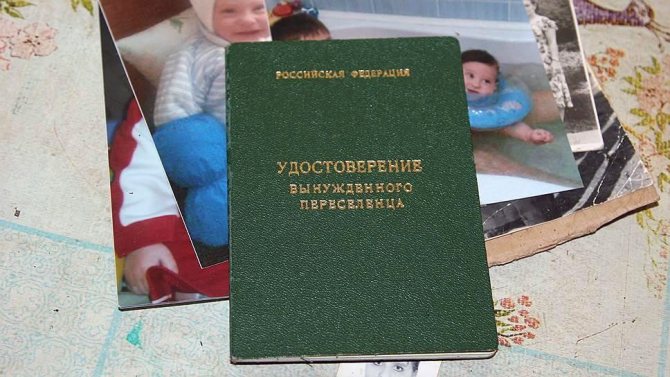
In general, the legal status of forced migrants in the Russian Federation is similar to the legal status of ordinary citizens, which is logical: after all, this category of persons has citizenship of the Russian Federation. However, there are some differences:
- the migrant has the right to receive temporary housing from the local flexible fund or a place in a temporary accommodation center - regardless of whether he owned residential property at his previous place of residence;
- if necessary, he is provided with a free translator while preparing the application and going through the status registration procedure;
- the state pays such persons monetary compensation for travel expenses and transportation of luggage to their place of temporary residence;
- they receive a one-time cash benefit from the federal budget for each family member;
- If necessary, forced migrants are provided with free medical care.
For reference: Russian citizens often apply for the status of a person displaced for forced reasons precisely because of the above benefits. In cases where there is no need for social protection of forced migrants, they can simply enter the Russian Federation and live as ordinary citizens.
The responsibilities of such persons, in addition to compliance with the Constitution and laws of the Russian Federation, include the need for annual re-registration and immediate registration with the Ministry of Internal Affairs at the place of residence in the event of a move.

Registration procedure and documents for migrant status
In order to acquire the status of a forced migrant, a citizen is obliged to apply to the FMS with a corresponding application in the established form. A sample form can be found at the territorial branch of a state organization, on its official website or on the Public Services portal. You can fill it out either by hand or using a computer and then print it out.
The application must be signed by the person applying. It must detail the reason for the applicant and all members of his family moving to a new place of residence. A written appeal can be submitted to the territorial administration either personally or through a legal representative.
The period of forced migrant status is valid for 5 years. The applicant is issued an appropriate state-issued certificate, which contains information about all minor members of the forced migrant’s family.
To extend the validity of the forced migrant status, you must contact the authorized body with a package of documents:
- Application for extension of status.
- Consent to data processing.
- Valid relocation certificate.
- An extract from the Unified State Register. If this document is not available, the FSN employee is obliged to request this data independently.
It is worth noting that not everyone can obtain forced migrant status. Certain categories of citizens will be denied this status.
Register now and get a free consultation from Specialists
How to obtain forced migrant status?
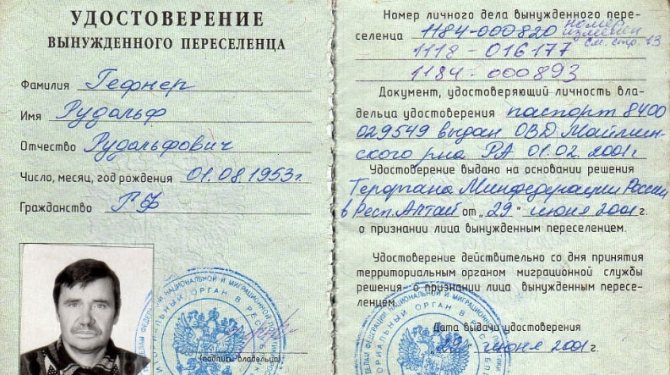
The basis for issuing a status is a written application from the applicant to the migration department of the Ministry of Internal Affairs at the place of arrival. In order for the competent authority to recognize the need to issue such a status, a citizen often has to document the facts of violence or persecution or even contact the judicial authorities on this issue. Such a petition can be submitted either in person or electronically or by mail.
The following must be attached to the application:
- ID card of a citizen of the Russian Federation;
- for minor applicants - birth certificate;
- marriage certificate - for those who are in a legal marital relationship;
- other documents confirming the existence of family relationships between a group of status applicants;
- two photographs of the established sample.
After registration of the application, the applicant is issued a Certificate of Registration of the Application. And after this petition is considered and a positive decision is made on it, the citizen receives a Forced Migrant Certificate.
Important: this status is not unlimited - it is assigned for a period of 5 years. If there are grounds, it can be extended once a year at the request of the applicant. The application must be submitted before the current certificate expires.
Features of forced migrant status
It is mandatory to comply with all obligations enshrined in this status, otherwise individuals may be deprived of it.
Rights and responsibilities of a forced migrant
The law establishes the basic rights and obligations of persons who have received this status. Basic rights include:
- choosing a place of residence on the territory of the Russian Federation from the proposed settlements;
- receiving a referral for accommodation in a temporary accommodation center;
- provision of travel and luggage transportation;
- compensation of expenses for low-income families for travel and luggage transportation.
However, it should be noted that in addition to the rights and benefits, this status also has the following obligations:
- notification of the FMS authorities about a change of residence;
- annual re-registration by the Federal Migration Service;
- maintaining order in the temporary stay center;
- comply with the Constitution and laws of the Russian Federation.
In case of failure to comply with the above obligations, the forced migrant will automatically lose his status.
It should also be noted that a forced migrant loses the right to reside in a temporary stay center if:
- obtaining other housing;
- deprivation of forced migrant status;
- absence for more than 6 months without specifying reasons;
- construction of individual housing.
Loss of forced migrant status
The law of the Russian Federation also establishes circumstances under which a citizen of Ukraine may lose his status as a forced migrant. The main ones include:
- permanent residence outside the Russian Federation;
- expiration of status, as well as non-extension of forced refugee status;
- false information was provided when submitting a petition or application for extension of forced refugee status;
- fake documents provided.
A citizen may be deprived of the status of a forced migrant based on a decision of the territorial executive body, which is assigned the function of supervision in the field of migration.
After the decision is made, within 5 working days, the person must be notified of the deprivation of his status as a forced refugee. This notice must indicate the reason for deprivation of status. Notification is sent to:
- electronic;
- notification letter.
In this case, the forced migrant’s certificate is invalid and must be returned to the Federal Migration Service. Also, a person who has lost his status is obliged to vacate the residential premises previously provided to him.
Government authorities may require compensation for travel expenses and baggage transportation if a person has knowingly provided forged documents and false information.

